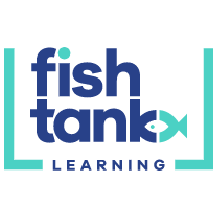It’s time to lesson plan for the week ahead. You sit down with the standards, objectives, and tasks you want to address, and start to figure out how the lesson should flow. You write your prompts and problems, you’ve got your exit ticket, and you’re done. Right?
Not so fast. Writing out the lesson plan, the actual objectives and problems, is just the beginning. The next part—your intellectual prep—is just as important, if not more important. The intellectual prep process is where you move from a physical lesson plan, to the strategies and teacher moves you are going to use in the moment to make that lesson accessible, engaging, and effective for every individual student in your classroom.
While there are many things to consider as you intellectually prepare your lessons, there are a few key aspects of instruction to focus on: Sparking interest, boosting engagement, addressing any misconceptions. By reviewing your written lesson plan with these things in mind, you’ll be able to supplement your already great lesson plan with the questioning strategies and teacher moves you know your students need.
Sparking Interest
When you introduce new content, it’s not always easy to get students excited. Whether the text seems a little complex, or the mathematical concepts are a bit abstract, you will likely have at least a few lessons that require some extra care to get students interested.
This is why your intellectual prep is so important. From the very first moments of your lesson, you want to consider how you’ll spark student interest. This might look like planning a short introduction to the topic through a video, classroom debate, or other activity. But, if you don’t take the time to deeply consider how students are showing up for the lesson, and how you will get them ready and excited for it, you might end up with a classroom full of blank stares!
So, once you’ve written your lesson plan,—or been given one from your specific curriculum—go back over it and see how you can make the first few minutes feel exciting for students. If you planned a great opening question to spark interest, your intellectual prep is where you’ll decide how to ask it and how to structure students’ opportunities to respond—what discussion protocols might you use? This extra attention to detail is what takes your written lesson plan to the next level by actively drawing students in and preparing them to work hard.
Boosting Engagement
While sparking interest from the onset of your lesson is important, student engagement doesn’t end there. As you review your lesson plan, you want to identify not only when students will engage with content and one another, but how that engagement will happen. This means thinking specifically about the questions you want students to focus on and the instructions you will give them for how to discuss, record answers, and refocus their attention on instruction when it’s time.
As you intellectually prepare to teach the lesson, you might realize that a particular question is very challenging or worth more class time. In your lesson plan, you can decide that this is going to be a small group discussion during which students have different roles and then present when they’re done.Or, instead, you could decide that this particular question has many possible approaches and you want students to complete a gallery walk to identify the similarities and differences in approaches.
By taking the time to go beyond the actual questions you plan to ask, and think deeply about how you will ask them and how students will answer, you ensure a higher level of engagement from students. Again, a great lesson plan is the first step, but intellectual preparation is critical to effectively bringing that lesson to life.
There are other ways you can plan to boost engagement too! There might be a great video you can show students, opportunities for movement in the classroom, or ways to personalize the content to your specific students interests.
Addressing Misconceptions
In your lesson, you’ve likely identified the questions you want students to address and the answers you hope they find. But, as teachers, we know that students don’t always get the right answers the first time. We also know that this creates an opportunity for learning that should be taken advantage of to show students both the value of making mistakes in the classroom, and the strategies to help them avoid the same mistakes in the future.
During your intellectual prep process, you can identify the misconceptions you expect to see, and proactively plan for addressing them. In a math lesson, this could look like writing out potential errors your students might make and considering why a student might make those errors. During class, you can then more easily respond to misconceptions and make learning moments from them.
If students aren’t making the mistakes you planned for, you can still use the prep you did to deepen learning. You can engage students in error analysis by showing them the work you purposely did incorrectly, and asking them to identify the mistakes, remedy them, and offer guidance to someone that had made the mistake to avoid it in the future.
In an ELA lesson, this could look like re-reading portions of a text and identifying places where students may get confused or preparing written responses with intentional mistakes, planning how you would guide students to improve their understanding of the text or their responses.
Through your intellectual prep process, you more deeply consider the tasks in your lesson plan and how students will engage with them. You will have a plan for how to introduce content and questions, and how to address misconceptions as they arise. This leaves you better prepared to deliver a highly effective, engaging lesson with confidence.





